Politics
Crisis of diminishing returns on leadership
Published
8 years agoon
By
Olu Emmanuel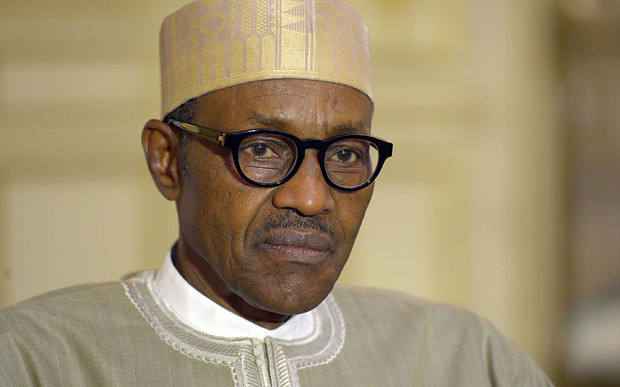
• Economy in perpetual downward slide
By SUNDAY ODIBASHI
THE increase in the pump price of petrol to N145 per litre from N86.50 on May 11 by the Federal Government has thrown the country into perturbing magnitude of economic crises. Apparently, President Muhammadu Buhari appears to be contending with the task of leadership in an economy laden with development challenges, essentially, weak production capacity, which has been degenerating phenomenal negative socio-economic indices over the decades.
The emergent All Progressives Congress (APC)-Government came into power with the promise of change. This created high popular expectations of better standard of living for Nigerian citizens and better governance.
Existing socio-economic data show that before the emergence of the APC-Government, the country has relatively overcome political instability, implying that sustainable political transitions have been achieved in the 16 years of the Peoples Democratic Party (PDP) control of the mainstream body politic.
More so, report on the rebasing of the economy showed that Nigeria became the fastest growing economy in Africa and among the top 10 fastest economies in the world under the PDP.
These were two significant legacies of the 16 years of PDP hegemony of the mainstream body politic.
However, the growth success was a mere reflection of high price of crude oil in the international market during the period and not of any deliberate plan by the leaders. Thus, there was growth without development in the economy. Poverty, unemployment, corruption, decay of infrastructures, massive importation of goods, low production capacity, crimes and other social vices, were rapidly growing alongside the fastest economy in the continent.
These were also part of the legacies of the previous administrations in the country.
The various reforms relating to economic transitions in the 16 years of PDP government consolidated the bourgeois state created during the decades of the military regimes.
The colonial economy was deliberately structured to keep Nigeria permanently in the periphery of the global economy, producing raw materials for factories in Europe and America and importing finished products from foreign economies for consumption in the domestic economy. Invariably, Nigeria produces what it does not consume and consumes what it does not produce. Accordingly, Nigerian leaders play very nominal roles in international political economy, where world leaders compete for global wealth.
However, inquiries have shown that leaders in the First Republic, 1960 to 1966, who included Chief Obafemi Awolowo, Alhaji Ahmadu Bello, Alhaji Abubakat Tafawa Balewa, as well as Dr. Nnamdi Azikiwe, sustained the inherited raw material economy, produced wealth and sufficient revenue for the various regional governments.
ALSO SEE: Buhari and subsidy removal: What Kachikwu is yet to tell us
At that time, the Nigerian Pound was equivalent to the British pound sterling and was about 30 pence to a dollar. Even as at 1973 exchange rate was 0.658 kobo to a dollar.
The Nigerian economy was so buoyant in the 1970s that the Udoji Commission advised then Head of State, General Yakubu Gowon, to pay government workers in the country ‘bonus salaries’, what was celebrated as the Udoji award.
At the end of the military escapade in 1998, exchange rate was N21.89 to a dollar and between N88 and N90 in the Parallel Market, when democracy was enthroned in 1999.
More so, in 1973, pump price of petrol was 6 kobo per litre, later 8.45 kobo per litre. The pump price of petrol was N20 per litre when the PDP took over in 1999.
Meanwhile, that the economy declined so low since the Buhari administration is not unexpected. The same variable that shot the economy up in the 16 years of PDP domination – high price of crude – has also gone low. That simply explains the tragedy of bad leadership in the country; Leadership that lacks the capacity to combine the enormous resources relating to the factors of production for wealth creation or optimum production in the economy.
Universally, a leader solves problems for the followers; in same vein that government solves problems for citizens.
Controversies over development policies of Buhari administration:
Ironically, the first two major policy pronouncements of the APC government within one year in office seem to reflect the sustenance of the status quo ante of a bourgeois state.
The increase in electricity tariff by the Minister of Power…, Babatunde Fashola, and the current increase of petrol pump price to N145 per litre by Minister of State for Petroleum, Ibe Kachikwu are beginning to make Nigerians feel that the APC change promise is being betrayed. The government is being perceived as promoting the interests of the hegemonic elite (the rich investors) while exploiting the poor masses, leading to the National Strike by the Organised Labour over the N145 per litre price of petrol. Kachikwu had penultimate week remarked that it is cheaper to import petrol from overseas than to refine locally. He covertly identified the basic problem of production crisis which the solution by any rational government is to work on the cost of production to encourage domestic production of the products.
ALSO SEE: Buhari succumbs to imperial policies
Subsequently, Vice President Yemi Osinbajo also explained that the real issue of the price increase is not a removal of subsidy, noting that at $40 per barrel of crude, there is no much of a subsidy to remove.
Professor Osinbajo stated that local consumption of fuel is almost entirely imported. He revealed that the NNPC exchanges crude from its joint venture share to provide about 50 per cent of local fuel consumption while the remaining 50 per cent is imported by major and independent marketers.
These marketers up until three months ago were said to source their foreign exchange from the Central Bank of Nigeria at the official rate. However, since late last year, independent marketers have brought in little or no fuel because they have been unable to get foreign exchange from the CBN. The CBN simply did not have enough. (In April, oil earnings dipped to $550 million. The amount required for fuel importation alone is about $225 million).
Meanwhile, NNPC tried to cover the 50 per cent shortfall by dedicating more export crude for domestic consumption, Osinbajo explained. He added that NNPC also lacked the capacity to distribute 100 per cent of local consumption around the country.
“We realised that we were left with only one option. This was to allow independent marketers and any Nigerian entity to source their own foreign exchange and import fuel. We expect that foreign exchange will be sourced at an average of about N285 to the dollar, (current interbank rate). They would then be restricted to selling at a price between N135 and N145 per litre,” Osinbajo declared.
“We expect that with competition, more private refineries, and NNPC refineries working at full capacity, prices will drop considerably. Our target is that by Q4 2018 we should be producing 70 per cent of our fuel needs locally. At the moment even if all the refineries are working optimally, they will produce just about 40 per cent of our domestic fuel needs,” the VP said.
Osinbajo identified foreign exchange as the basic cost component largely responsible for the substantial rise in pump price of petrol.
The papular explanation was that government should rebuild the production capacity of all sectors of the economy through appropriate stimulus. History of developed economies has shown that economies seldom develop through commerce and consumption but through production, improved technology and wealth creation. Rational governments supervising 21st century economies strengthen the production capacity of their domestic economies, then, seek to dominate global trade.
Some stakeholders feel the ministers are ill-advising the President.
A Lagos-based legal practitioner, Femi Falana SAN, had however, recalled that the Directorate of Petroleum Resources (DPR) recently invited fresh bids for the setting up modular refineries. He revealed that at the end of the screening exercise, sometime in March this year, the DPR announced that it had awarded 22 licences for modular refineries with combined capacities to refine 1.429 million barrels of crude oil per day. “If the policy is genuinely pursued, the construction of the refineries ought to be completed within the 9-12 months. If such refineries are established in the country, the importation of fuel and the fraud associated with it will stop,” Falana had argued.
The human rights lawyer advocated that “at this stage, President Buhari ought to prevent neo-liberal ideologues from hijacking the administration for the purpose of punishing the Nigerian people for the looting of the treasury and mismanagement of the national economy.”
ALSO SEE: Fuel price increment is Buhari’s wickedness taken too far — Fayose
Perhaps, the APC government while being seemingly preoccupied with revenue generation to fund the budget does not consider the multiplier effects on cost of production. No investor deploys his/her capital into an economy where cost of production is high. The simple logic is that the purchasing power of citizens is weakened, thus, capacity utilization in the economy becomes low, which has direct spillover effect on the rate of turnover; then, the economy sinks deeper.
In the 1960s into the 1980s, Nigeria was classified with countries like North Korea, Pakistan, Singapore, Indonesia, Brazil, Malaysia, among others, as Third World Countries in the global political economy. Today, these other countries have attained the status of Newly Industrialized Countries (NICs) with developed production capacity and advanced technology.
A major debate that dominated the international community last week was China’s Market Economy Status (MES).
The European Union (EU) rejected China’s MES, arguing that China is not eligible for MES.
China was accused of dumping and creative cheap goods. Europe countries were worried that China’s MES will affect other sectors, take away of increase unemployment in their economies.
The US had already declared they will not recognize China’s MES.
About 150 countries already accepted China’s MES but analysts argue that they are countries with low production capacity.
Perhaps, this is a good example of rational governments and leaders that have the capacity to manage 21st Century economies.
China joined World Trade Organisation (WTO) in 2001 is recognized to have benefitted immensely from free trade and globalization.
It is expected that the ministers should re-connect with President Buhari’s development ideas, like his rejection of Naira devaluation, to make Nigeria work.
You may like
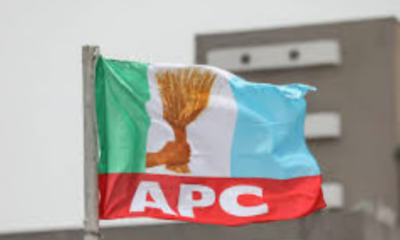

Relationship between Oyetola, Omisore remains cordial — Osun APC
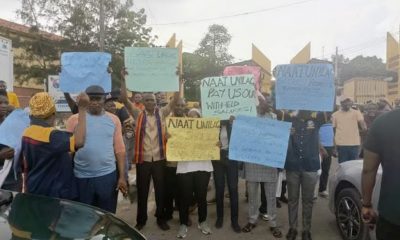

SSANU, NASU members block UNILAG gate over withheld salaries
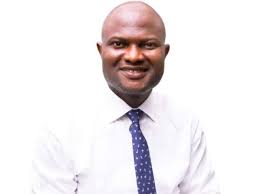

Edo 2024: Idahosa writes INEC, claiming APC candidacy


Thugs attack senator in Kogi govt house, six arrested


Edo 2024: APC sells gov nomination form at N50m
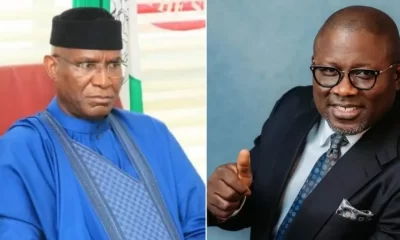

Supreme Court reserves judgement on SDP. LP, APC appeals against Oborevwori in Delta
Trending

 Football5 days ago
Football5 days agoGuardiola advised to take further action against De Bruyne and Haaland after both players ‘abandoned’ crucial game
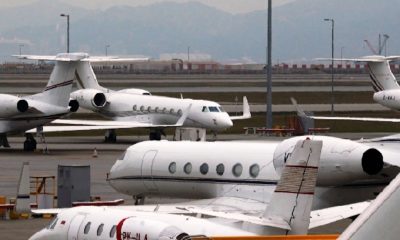
 Aviation7 days ago
Aviation7 days agoNCAA suspends three private jet operators for engaging in commercial flights

 Aviation6 days ago
Aviation6 days agoDubai international airport cancels flights as flood ravages runway, UAE

 Featured3 days ago
Featured3 days agoPolice reportedly detain Yahaya Bello’s ADC, other security details

 Comments and Issues5 days ago
Comments and Issues5 days agoNigeria’s Dropping Oil Production and the Return of Subsidy

 Education4 days ago
Education4 days agoEducation Commissioner monitors ongoing 2024 JAMB UTME in Oyo

 Business4 days ago
Business4 days agoMaida, university dons hail Ibietan’s book on cyber politics

 Featured1 week ago
Featured1 week agoRelationship between Oyetola, Omisore remains cordial — Osun APC

